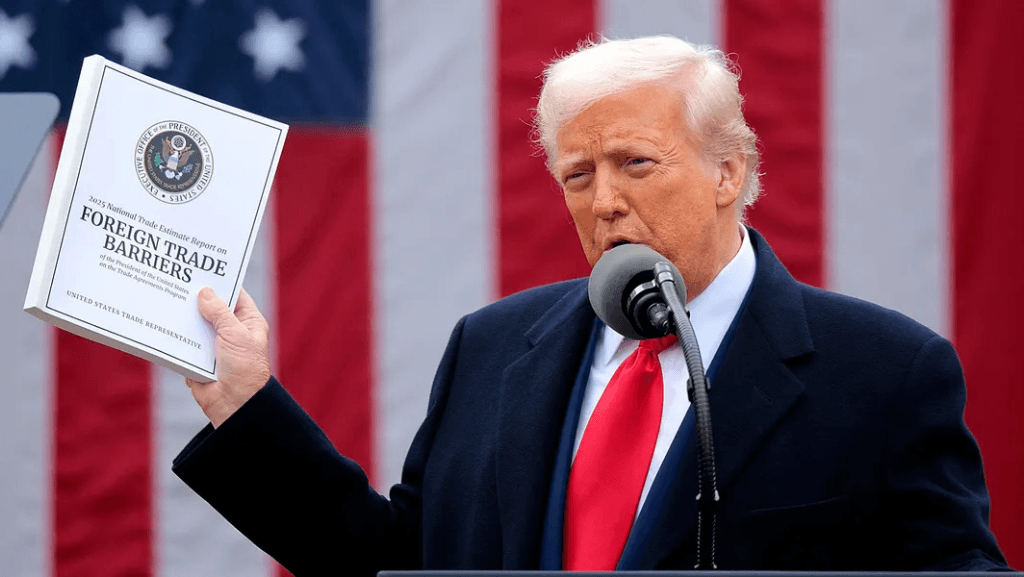
US Court Halts Trump’s ‘Liberation Day’ Tariffs on Global Imports
In a landmark decision, the court reinforced the constitutional limitations of presidential authority, emphasising that sweeping trade policies must align with established legal frameworks and congressional mandates.
In a significant legal rebuke, the U.S. Court of International Trade (CIT) has blocked former President Donald Trump’s proposed tariffs on nearly all global imports, commonly referred to as the "Liberation Day" tariffs. The court ruled that the sweeping tariff action lacked a valid statutory basis and exceeded presidential authority under U.S. trade law, signalling judicial limits on executive power in trade matters.
Background of the Tariff Proposal
The "Liberation Day" tariffs were part of a broader protectionist agenda floated during Trump’s campaign and post-presidency public appearances. The former President proposed universal tariffs—reportedly as high as 10% on all imports—intended to reduce the U.S. trade deficit, promote domestic manufacturing, and counter unfair trade practices, particularly by China.
Trump argued that such tariffs would stimulate domestic economic growth, bolster American jobs, and reduce dependency on foreign supply chains. However, trade experts, economists, and global allies warned that such blanket tariffs would violate international trade norms, provoke retaliatory measures, and lead to higher consumer prices.
The Court’s Rationale
In its decision, the three-judge panel of the CIT found that the proposed tariffs were not properly grounded in any of the relevant statutory provisions that permit the President to unilaterally impose trade restrictions. These typically include:
-
Section 232 of the Trade Expansion Act of 1962, which allows tariffs for national security concerns.
-
Section 301 of the Trade Act of 1974, which addresses unfair trade practices.
-
International Emergency Economic Powers Act (IEEPA).
The court determined that Trump's proposed tariffs failed to satisfy the procedural and substantive requirements of these laws.
The ruling emphasised that presidential trade powers, though broad, are not without limits and must be exercised in conformity with legislative mandates.
Legal Implications
The court’s decision has far-reaching implications for future executive actions on trade policy. It reaffirms the role of Congress in defining trade frameworks and ensures that future administrations must comply with statutory standards before levying tariffs.
Legal scholars interpret this as a potential precedent that could constrain similar broad-based tariff measures by future presidents, requiring:
-
Evidentiary justification
-
Stakeholder consultation
-
Adherence to WTO obligations and U.S. trade statutes
The ruling also adds weight to ongoing debates about presidential overreach, especially in areas traditionally governed by congressional authority.
Industry and Economic Reactions
Business groups and import-reliant industries welcomed the decision, citing relief from potentially disruptive trade costs.
The National Retail Federation (NRF) stated:
“American businesses and consumers narrowly avoided a devastating blow. These tariffs would have raised prices on everything from electronics to apparel.”
According to the Peterson Institute for International Economics, the proposed tariffs could have led to consumer cost increases of over $500 billion annually, impacting U.S. households and potentially triggering global trade wars.
On the other hand, America First proponents and some manufacturing advocates criticised the court's decision, arguing that the U.S. should retain broad discretion to respond to economic threats without international constraints.
Broader Context and Political Ramifications
This legal development comes amid increasing global uncertainty regarding the future of U.S. trade policy, especially as 2024 election-related litigation and campaigning continue. Trump, who is actively involved in politics, has consistently pushed for tariff-centric trade reforms, often framing them as tools of economic sovereignty.
The ruling could constrain similar policy platforms in future elections and strengthen calls for Congress to reassert control over trade matters. Some legislators have already introduced bills aiming to limit unilateral tariff actions by the President, particularly after the Trump-era trade wars that roiled global markets.
The Bottom Line
The CIT’s decision to strike down the "Liberation Day" tariffs marks a pivotal moment in the ongoing battle over executive power in trade regulation. While the ruling curtails broad tariff actions under the guise of national policy, it also reaffirms the constitutional separation of powers and underscores the judiciary's role in maintaining legal boundaries for presidential authority.
As global trade dynamics evolve and U.S. economic interests continue to intersect with geopolitical tensions, the balance between assertive trade policy and legal compliance will remain a critical area of scrutiny.
For any enquiries or information, contact info@thelawreporters.com or call us on +971 52 644 3004. Follow The Law Reporters on WhatsApp Channels.